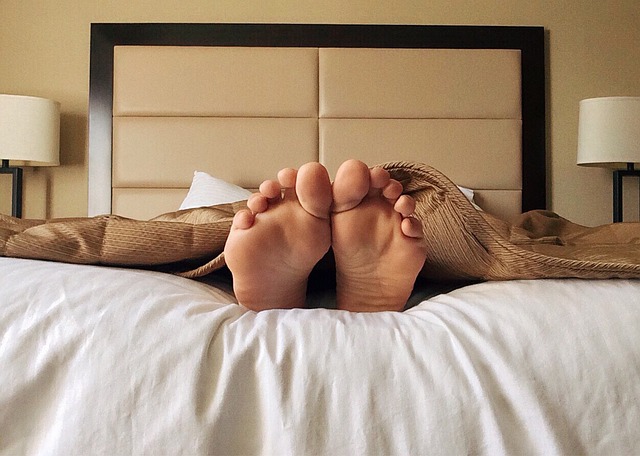Restless Leg Syndrome (RLS, and sometimes called Willis-Ekbom disease) is a problem that does what it says on the tin – it makes it impossible for you to keep your legs still. The symptoms are typically worse at night when sitting or lying down and tend to improve with movement. Sufferers report a variety of really uncomfortable feeling in the legs including aching, pulling, itching, and a crawling or electric shock sensation in the legs that cause them to want to constantly move, stretch or shake their legs to get relief.
The American Medical Association actually classify RLS as a sleep disorder – even though the problems occur when you are awake. The cause of RLS is not really understood, but several things can contribute to it or make the problem worse.
Iron deficiency is common among RLS sufferers. Peripheral neuropathy, diabetes, Parkinson’s disease, and kidney diseases are also related to RLS. Pregnancy related RLS typically occurs in the third trimester and usually resolves approximately one month after giving birth. Several types of medications are also linked to RLS including certain antiemetics, antipsychotics, antihistamines and antidepressants.
Conventional medicine has little to offer sufferers and the sleep disturbance, which is often the most troublesome symptom of RLS, can have a negative impact on sufferers ability to function during the day.
As a result many turn to complementary and alternative medicine for relief from the debilitating physical and emotional impact of RLS – though scientific studies on these are sometimes lacking.
A recent pilot study of 38 people in the journal Evidence-Based Complementary and Alternative Medicine however, found that regular acupuncture over a six-week period did reduce symptoms of RLS when compared to ‘sham’ acupuncture (putting needles into non-therapeutic sites). This led the authors to suggest that acupuncture might be a useful longer-term treatment for the condition.
In Traditional Chinese Medicine (TCM) RLS is closely related to imbalances in the Zang-Fu organ systems, which includes the liver, heart, and kidneys and acupuncture treatment designed to rebalance these organs, ‘nourish’ the spleen and improve circulation may be helpful.
A few other non-drug remedies to try if you have restless legs include:
A sleep routine: Disrupted sleep can make RLS symptoms worse. Getting into a sensible sleep routine can help. As far as possible try to bed at the same time every night and getting up at the same time every morning. To get deep sleep, it may help to go to bed a little later and get up later. Keep your bedroom cool, dark, and comfortable. Keep the TV and computer out of the bedroom.
Take iron. Because low levels of iron might be linked to RLS, you might wish to ask your doctor for a blood test to determine your iron levels. If you take supplements those containing ferrous iron, such as ferrous fumarate, ferrous sulphate or ferrous gluconate, are absorbed better than those containing ferric iron.
And other supplements… Some people get relief from RLS symptoms by taking folic acid, magnesium, or vitamin B12.
Warm up…or cool down. You may have to experiment to find what works for you but some sufferers have reported relief with either a cool shower or a soak in a warm bath before bedtime. Alternatively try either a heating pad or an ice pack on your legs to relieve symptoms.
Self-massage. Just before bed time massage the whole of the leg, giving extra concentration on the calves. Try using and oil or lotion base to which you have added lavender and chamomile essential oils – both of which have sedative qualities. Or try using St. John’s wort oil which is soothing for the nerves.
Exercise. Regular, mild exercise during the day may help. Take a short walk during the day or try some simple stretching exercises before bed. But don’t overdo it, even if it’s early in the day. Too much or too vigorous exercise can make your RLS symptoms worse.
Try yoga. In one study gentle yoga was found to be an effective intervention for improving sleep, mood, perceived stress, and blood pressure in older women with RLS.
Relieve stress. Stress can cause your RLS to flare and make symptoms worse. Find ways that help you relax and calm your anxiety. Deep breathing, yoga, meditation, progressive muscle relaxation, or tai chi are all good ways to relax, as are absorbing hobbies.

